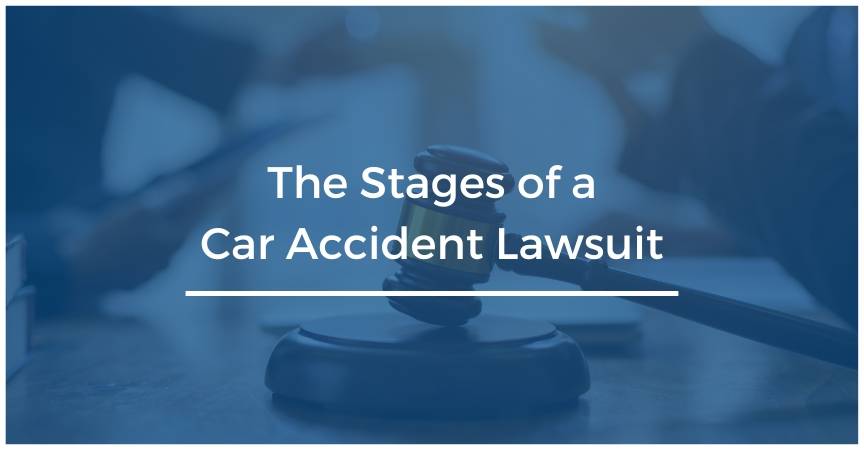Car accidents are not uncommon. Accidents that are “fender benders” are often settled between the two parties’ insurance companies. When larger-scale accidents happen – where injuries are extensive and/or death is involved – the victim may opt to sue the negligent party for non-economic damages because these are rarely covered by insurance companies. Non-economic damages include emotional distress, pain and suffering, and loss of spousal companionship (when a death occurred because of the car accident).
If you and your car accident attorney decide the best course of action is to file a lawsuit, these are stages that you can expect from your car accident lawsuit.
Filing the Complaint or Petition

The Defendant May File a Motion
Be prepared for a motion that the defendant may file, including:
- Motion for change of judge – to get your case moved to a new courtroom
- Motion for change of venue – to get the case moved to a new courthouse
- Motion for removal – which can move your case from state court to federal court if the defendant is from a different state
- Motion to dismiss – the defendant disputes the facts of the case and believes no relief is warranted
Trial Date is Set
If your case is not dismissed, the judge will set a trial date. Don’t be surprised if your trial date is months or a year down the road as car accident cases have lower priority than some other personal injury cases. In the meantime, the judge may order a mediation to see if the case can be resolved by a neutral mediator.
Discovery Phase
If the case is not settled through mediation, this is the time when both attorneys investigate the facts. The attorneys will interview anyone involved with the case such as medical doctors and witnesses to the accident. The interview is called a deposition. The interviewee swears to tell the truth, their answers are recorded and could be used in court at a later date. Both attorneys will have a chance to ask questions of each interviewee.
Motion for Summary Judgment
If you and your attorney believe the evidence gathered in the discovery phase supports compensation from the defendant, you may bring a motion for summary judgment. The judge can grant the motion or may conclude that a trial is needed to dispute the facts.
Trial
Not many car accident lawsuits make it to trial. If your case makes it to trial, it may be heard at a bench trial – where the judge will decide your case – or it may be heard at a jury trial – where the jury hears the evidence and decides the outcome.
At any time during the above proceedings, the defendant may offer to settle the case with you.
Ted Babbitt has years of experience as a car accident lawyer. He takes every case seriously. Contact him online for a no-fee consultation or call (561) 375-2841.
